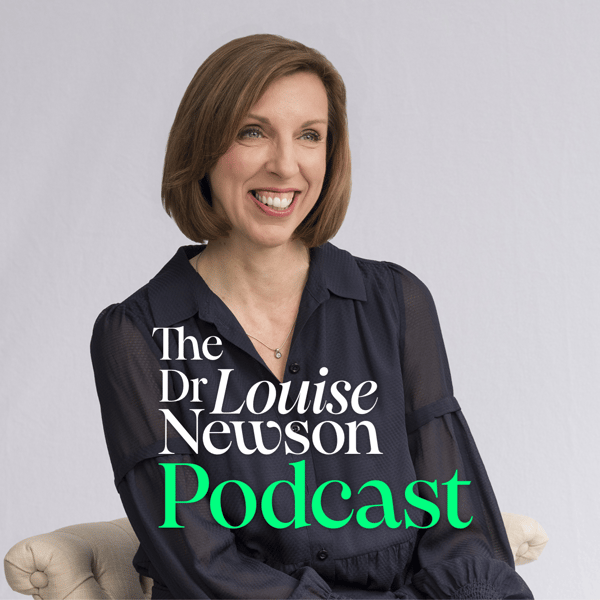140 - Addressing the emotional challenges of perimenopause and menopause with Simona Stokes
The Dr Louise Newson Podcast
Dr Louise Newson
4.8 • 798 Ratings
🗓️ 22 February 2022
⏱️ 32 minutes
🧾️ Download transcript
Summary
Transcript
Click on a timestamp to play from that location
| 0:00.0 | Hello, I'm Dr. Louise Newsome and welcome to my podcast. I'm a GP and menopause specialist and I run the Newsome Health Menopause and Wellbeing Centre here in Stratford-Bron-Avon. I'm also the founder of the Menopause charity and the Menopause support app called Balance. |
| 0:29.9 | On the podcast, I will be joined each week by an exciting guest to help provide evidence-based |
| 0:36.5 | information and advice about both the perimenopause and the |
| 0:40.9 | menopause. So today on the podcast I'm going to introduce to you, Simone Stokes, who I was first |
| 0:50.2 | introduced to a few years ago actually by one of our clinicians and we've since done |
| 0:54.3 | quite a lot of work together and she's very interested in all sorts of things related to |
| 1:00.4 | the power of our mind but especially the way our hormones can affect and control any of us |
| 1:06.6 | when it comes to the way we think so simona thank, thank you so much for coming today. I'm delighted to |
| 1:12.3 | be here, Louise. You know, I've been following you for a number of years and I think you've done |
| 1:18.3 | an amazing job to put menopause on a map and bring it into day-to-day conversation. So, you know, |
| 1:24.3 | we owe you a lot of the work you've done. So I'm delighted to be here with you today. |
| 1:29.3 | Oh, thank you. Well, this is great. As you know, a great team effort. And this is only the beginning of so much that needs to be done. |
| 1:35.4 | So before we start talking too much about the menopause, are you able to just explain a bit about your background and what you do and how you got into what you do as well, which would be really |
| 1:44.3 | interesting. Yes, sure. So, as you know, Louise, I'm a counselling psychologist. I specialised |
| 1:50.9 | in cognitive behavioural therapy and DMDR and I've got over 20 years experience in a clinical |
| 1:57.4 | field. Now, I have worked clinically for all these years, in spite of holding, you |
| 2:03.3 | know, senior positions within NHS management positions, but I love so much the clinical work |
| 2:10.0 | and that kind of one-to-one contact. I just couldn't get away from it. So when I go to the point |
| 2:15.6 | of deciding that I want to do something different |
| 2:19.4 | after being by then about 18 years in voluntary sector, NHS, I decided to move in a private |
| 2:27.1 | sector. I have a small independent psychology practice in Birmingham. I found it in able |
| 2:33.5 | wellness consultancy. And two years ago, |
... |
Transcript will be available on the free plan in -1134 days. Upgrade to see the full transcript now.
Disclaimer: The podcast and artwork embedded on this page are from Dr Louise Newson, and are the property of its owner and not affiliated with or endorsed by Tapesearch.
Generated transcripts are the property of Dr Louise Newson and are distributed freely under the Fair Use doctrine. Transcripts generated by Tapesearch are not guaranteed to be accurate.
Copyright © Tapesearch 2025.

